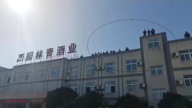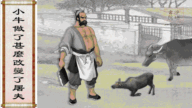【新唐人2014年01月08日訊】繼中國新疆和西藏出現群眾抗議,近年來,內蒙古也頻頻爆發民眾抗爭事件。日前,因抗議國有林場強佔牧場的6名蒙古牧民,被中共以「破壞生產經營秩序罪」起訴,6人分別被判1到2年不等的刑期。家屬和律師不服判決,決定上訴。數百牧民連續兩天到當地政府請願。
日前,內蒙古自治區翁牛特旗新蘇鄉嘎查村的6名牧民,因抵制牧場被佔的案件開庭。起訴書中指控6人煽動當地牧民,干擾林場人員的工作,造成經濟損失,當地法院以「破壞生產經營罪」分別判處6人1到2年徒刑。
被判刑兩年的牧民「特古斯巴音」的姐姐「沙布杜」對《新唐人》說,1月4號他們家人就收到了判決書。
內蒙古自治區牧民特古斯巴音姐姐 沙布杜:「家屬正準備給他上訴,他本身沒罪就判咱們那個啥..罪。」
也被判刑兩年的嘎查村村長「圖力古日」,他的妻子莎蘭高娃說,她1月4號到看守所拿到了判決書,6人都是上個月31號被判決,現在她已委託律師上訴。
內蒙古自治區村長「圖力古日」妻子 莎蘭高娃:「10天之內,如果上訴的話,他還在看守所裡,那個上訴狀還未寫,律師正好寫著。」
當地牧民說,上個月12月30號至31號,有近200名牧民,連續兩天到市政府門前,抗議這6人被起訴。
內蒙古自治區牧民胡先生:「我們老百姓問了,到底有甚麼罪,給我們解釋解釋,那些區政府領導還沒見我們,找他們談話沒接待我們。」
這起案件源於去年6月,一個名為「雙合林」的國營林業公司,非法佔用牧民的土地放牧,6位牧民因此與中國工人發生衝突。「圖力古日」最初的辯護律師「呼和寶力高」,在當地政府脅迫下退出了這起案件。
蒙古族律師呼和寶力高指出,這起案件只是土地糾紛案,6人被刑事處理,這種判決明顯不公。
蒙古族律師呼和寶力高:「他們幾個應該不構成罪,而且在審判階段,檢察機關的證據嚴重不足,他這個罪名很勉強的,後來他們把6個公民羈押以後,6個公民當庭都不認罪,後來公、檢、法機構天天到看守所做工作,說你認罪我就放你,不認罪我就判你。」
「圖力古日」和「特古斯巴音」因拒不認罪被判兩年徒刑,另4人在當局脅迫下認罪,但仍被判處1年半監禁,緩期執行。
呼和寶力高指出,這起案件的爆發,一開始就錯在國有林場不該去強佔牧民的土地。
呼和寶力高:「土地管理法有個規定,比如說,雙方土地發生爭議以後,雙方對有爭議的土地現狀不能改變,當時土地已經發生了爭議,所以應該雙方都不得改變土地現狀,但是林場職工他們是違法了,我們去制止,應該是合法的行為。」
一位不願意透露姓名的律師對媒體說,早前村民們曾前往市政府和北京上訪,當地政府受到了上級批評,因此他們對這些牧民採用了刑事處理手段。
海外「南蒙古人權信息中心(SMHRIC)」《南蒙古觀察》網站引述當地牧民的話說,庭審當天,當局禁止牧民的代理律師出庭辯護,並阻撓數百名牧民前往法庭旁聽。
據了解,嘎查村牧民因土地被強佔已上訪7年,遭到當局的長期監控和迫害。去年,300名牧民就曾針對當地非法賣地及抓捕6名牧民,致函各級政府及檢察院等部門,指出當地前黨支書記額木格圖,以及現任黨支書記劉金互相勾結,非法賣掉兩萬多畝土地。
內蒙古是中國北部資源豐富的省級民族自治區,約佔中國總面積的十分之一,擁有中國最大的煤礦儲量,人口約2400萬人,其中蒙古族不到兩成。近年來,內蒙牧民反抗國有礦業公司和林場,強佔牧場和土地引起的衝突,時有發生。
去年(2013年)3月,內蒙古通遼市扎魯特旗牧民因不滿數萬畝土地被強徵,到北京上訪,遭當地公安堵村阻截;2011年,一名牧民被礦業公司的卡車軋死事件,曾引發大規模示威。
採訪編輯/李韻 後製/李勇
Six Mongols Sentenced for Protesting Against Forced
Grazing Land Grab
Following the ethnic protests in Xinjiang and Tibet, Inner
Mongolia also suffers from grievances.
Six Mongolian herders were recently sentenced one
to two years of imprisonment on a charge of
“sabotaging production management".
While families and lawyers have decided to appeal, hundreds
of local herders have petitioned to the local
Government for two consecutive days.
Recently, a case involving six herders of the Gachaa Village,
Ongniud Banner of Inner Mongolia Autonomous,
went on trial for refusing to give up their grazing land.
The indictment, alleged six local herders had incited local villagers
to interfere with forestry company workers
and causing economic losses.
Six herders were sentenced to one to two years of jail term
on a charge of “sabotaging production management"
by the local courts.
Sobdoo, the sister of one of the accused called Tugusbayar,
told NTD that they’d received the verdict on Jan. 4.
Sobdoo, herder Tugusbayar’s sister, Inner Mongolia Autonomous,
“We are getting ready to appeal. He is not guilty at all."
Sarangowaa, the wife of Tulguur, one of six herders receiving
two years of jail term,
indicated she had received the verdict on Jan. 4,
and the court delivered the verdict on all six herders on Dec. 31.
She has commissioned a lawyer to appeal.
Sarangowaa, the wife of Tulguur, village chief in Inner Mongolia
Autonomous: “Appeal has to be done in 10 days.
He is in the detention center. The lawyer is drafting the appeal."
Nearly 200 herders staged protests in front of city hall on
Dec. 30 and 31 against the charges on the six herders.
Mr. Hu, herder of Inner Mongolia:
“We want an explanation. What kind of crime is it?
None of the local officials would see us.
We have not been able to see any one of them."
A state-owned company, Shuanghe Forestry, was alleged to
illegally occupy grazing land last June.
Conflict broke out between the six herders and the forestry workers.
Tulguur’s former defense attorney, Huhuobaoligao, was forced
to withdraw from defending the case by local government.
Attorney Huhuobaoligao indicates this is more than just
a land dispute but a criminal case.
The verdict is clearly unjust.
Huhuobaoligao, Mongol attorney: “They should not have
been charged.
The prosecution’s evidence was very poor and could not
sustain the charge at all.
After the six citizens were detained, none of them pleaded guilty.
The officials have since tried to persuade them to confess,
claiming, with their confession, they’ll be released,
otherwise, they’ll receive a sentence."
Both Tulguur and Tugusbayar, were sentenced to two years
imprisonment for pleadeding not guilty,
while the other four still received suspended imprisonment
of one and a half years after being
forced to plead guilty.
Huhuobaoligao indicates, the state-owned Forestry should not
have occupied the grazing land to begin with.
Huhuobaoligao: “The Land Management Law has ruled that
no change can be made on the disputed land.
But the Forestry workers have obviously violated the law.
It is supposed to be legal for the herders to stop them from
continuing this exploitation. "
A lawyer who requested anonymity, told Reuters that the
villagers have been going to the municipal
government & Beijing to petition.
The local government has been criticized for this.
They are under great pressure, so they’ve turned it in
to a criminal case.
Southern Mongolian Human Rights Information Center quoted
local herder’s complaint.
On the day of the trial, local authorities prohibited the
defending attorney’s appearance at the court as well as
hundreds of herders to sit in the courtroom.
It is understood that Gachaa villagers have been petitioning for
seven years over the illegally confiscated grazing land.
Villagers have thus been subject to local authorities’ suppression.
Last year, 300 herders protested addressing issues via
local government and procuratorate,
about the illegal land sell and arrest of six herders,
as well as the collusion of local party secretaries selling over
20,000 acres of grazing land.
The resource-rich Inner Mongolia sits in northern China,
accounting for one-tenth of China, harboring
China’s largest coal reserves.
In a population of about 24 million, Mongols are less than 20%.
Recently,conflicts have occurred frequently due to land
grabs by state owned mining and forestry companies.
In March 2013, herders of Jarud Banner, Tongliao City, have
petitioned to Beijing over forced land grabs.
Tens of thousands of acres of grazing land has been exploited,
yet petitioners are always met with blockage
of local police.
In 2011, more mass protests broke out after an ethnic Mongol
herder was killed by a truck,
it is said, he was also taking part in a protest
against pollution caused by a coal mine.
Interview & Edit/LiYun Post-Production/LiYong





























